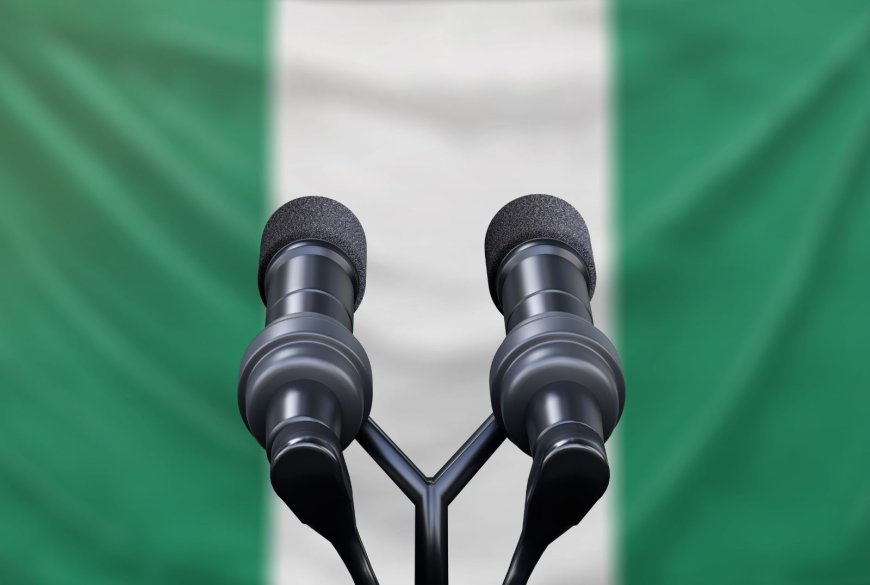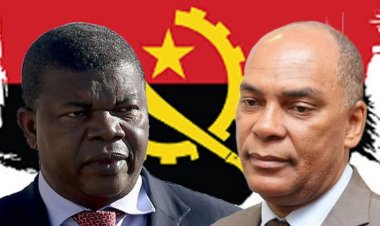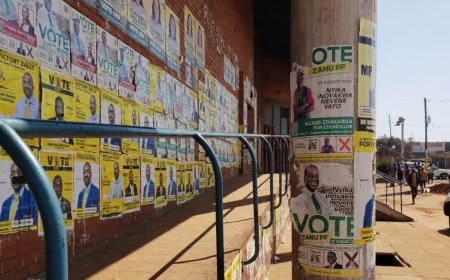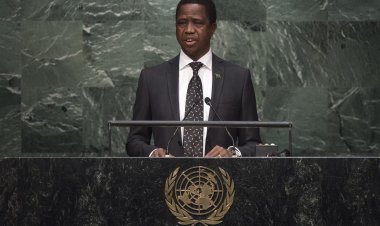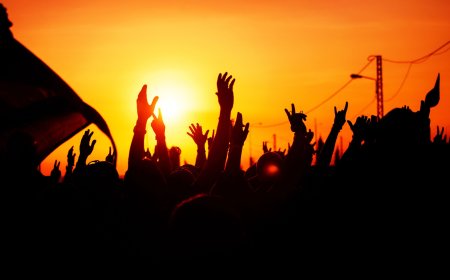This article is part of a series on the Nigerian 2023 Elections. The series is edited by Serwah Prempeh and Dr. Olumide Abimbola.
Summary
- Nigeria’s February 2023 election will be a tight contest between the ruling All Progressive Congress (APC), with former Lagos State Governor Bola Ahmed Tinubu as its candidate, and the main opposition, the Peoples’ Democratic Party (PDP), led by former Vice President Atiku Abubakar.
- This will be the first election since 2015 that will have other parties as strong contenders. The former governors Peter Obi of the Labour Party and Rabiu Musa Kwankwaso of the New Nigeria Peoples’ Party (NNPP) are not seen as likely winners, but they have the potential to force the elections into a runoff.
- The key issues in the election revolve around the state of the economy and security. All candidates are pledging to implement free-market economic policies and reform the security sector.
- This could be the first election in Nigerian history that will go into a runoff election. However, if there is a second round, the Nigerian law defining which two candidates qualify for a runoff is likely to disenchant voters and affect turnout.
Background
On February 25, an estimated 93 million Nigerians are expected to go to the polls to vote for a new President and federal parliament members. The parliamentary elections are based on a first-past-the-post system; the presidential winner needs a simple majority of all votes cast as well as a minimum of 25% of votes cast in at least 24 out of Nigeria’s 36 states.
This will be the seventh election since the return to democracy in 1999. The incumbent President Muhammadu Buhari will not be running as he reached his constitutional limit of two four-year terms. All 18 political parties are fielding candidates to succeed him.
Nigeria’s current issues are manifold. The elections come at a time when the country is still battling a 14-year Islamist insurgency in the North-East, the rise of banditry that has killed thousands and displaced millions in the North-West, and separatist agitations in the South-East, not to mention a rise in highway kidnappings and clashes between nomadic herdsmen and farming communities in the country’s Middle Belt. Nigeria’s economy has also experienced two economic recessions in the last eight years, and inflation is at 21%, unemployment at 33%, and youth unemployment at 53.4%.
This paper explains the political dynamics around the elections. It highlights the main contenders, how they emerged and their governance commitments. It also analyzes the implications of each candidate winning for Nigeria and for its relations with Europe.
Past Elections: Candidates’ Selection and Messaging
Elections in Nigeria are not won on the strength of contenders’ ideas but more around the personality of the candidates and the ethno-regional configurations at play. For example, in 1999, former Head of State Olusegun Obasanjo won on the PDP platform against his only other opponent, who was also of Yoruba ethnicity. The choice of Yoruba candidates by both parties (the other being a coalition of the All Peoples’ Party and the Alliance for Democracy, both now defunct and part of the APC) was to appease the ethnic group after the 1993 elections. That election had been won by the late MKO Abiola, a Yoruba billionaire and politician, but was subsequently annulled by the contemporary military government, and military rule was extended for a further six years with two heads of state.
Obasanjo won his 2003 re-election against Buhari, who ran that campaign and the next three on the message of austerity and fighting corruption. Buhari had won the candidacy of the All Peoples’ Party (subsequently All Nigeria Peoples’ Party) after the party had pressured all other northern candidates to step down while the southern candidates refused to participate in the primary, alleging favoritism. The only remaining southern candidate, former Senate President Chuba Okadigbo, became his running mate.
However, accusations of religious fundamentalism were directed against Buhari after his support for introducing the Sharia criminal law in the country and his urging of Muslim constituents to vote for only Muslim candidates had dogged him and limited his following to northern Muslim voters. This meant that, in 2003, Obasanjo was able to sweep the South and parts of the North that were not predominantly Muslim.
In 2007, as Obasanjo’s term came to an end, there was agitation within the PDP and across the country for his successor to come from the North. This agitation paved the way for the governor of Katsina State, Umaru Yar’adua, to be the PDP candidate with Obasanjo’s blessing, as opposed to Vice President, Atiku Abubakar, also a Northerner.
That election was won by the PDP and saw a change in economic policies from Obasanjo’s more liberal leaning positions to socialist-oriented policies such as increasing fuel subsidies and reversing privatization of some state-owned enterprises. This change is proof of how there are different policy approaches within the same party, and it would be remiss to assume that a party has its own, unique, ideological stand. At best, Nigerian political parties are merely conduits to power and not groupings of the same ideological minds.
However, Yar’adua passed away in 2010, bringing into office his Vice President Goodluck Jonathan and making him the first person from the oil-rich Niger Delta, home to numerous ethnic groups and part of the former Eastern region, to lead Nigeria. Jonathan’s emergence and later announcement that he would not only complete Yar’adua’s last year in office but also run for the next election presented a political conundrum: the North insisted it had to finish its ‘turn’ at the presidency while the Niger Delta, long politically marginalized despite the region’s oil revenues, refused to let this rare opportunity go.
In the end, Jonathan emerged as the PDP candidate over Atiku Abubakar, who had left and then returned to the party and was backed by the party’s northern bloc. In the elections, Jonathan defeated Buhari, who had formed his own party, the Congress for Progressive Change, (CPC also now part of the APC), and still had his support confined to parts of the North. Jonathan’s election was followed by massive violence by Buhari’s supporters, who believed that the election had been rigged against Buhari.
By 2015, the APC had emerged, formed by the merger of the ACN, ANPP, and the CPC and based on the realization that, individually, those parties lacked the national footprint to defeat the PDP. The party was further bolstered by the defection of a section of the PDP miffed by Jonathan’s decision to run for re-election, which claimed the decision was a reneging of an agreement that he would serve only one term. Like previous elections, the messaging assumed an ethno-religious dimension on both fronts: the PDP tapping into the marginalization feelings of the South-East and South-South to shore up support while the APC whipped up sentiments of the North being cheated in terms of how long it had held the presidency.
The consistent support of an average 27% over three elections that Buhari enjoyed gave him an advantage over other aspirants in the APC, including Atiku and Kwankwaso. Kingmakers within the party calculated that, with his strong base and the addition of the South-West, which was the stronghold of the ACN, the party could have an edge over the PDP in the elections. In the end, the calculations were right, also as parts of the North-Central that had consistently voted for the PDP switched to the APC. That epochal election was the first time in Nigerian history that an incumbent president had lost re-election.
The Main Current Contenders and How They Were Selected
The four leading political parties in this year's run up to elections are the APC, the PDP, the Labour Party, and the New Nigeria Peoples’ Party (NNPP).
The party of the incumbent President, the APC, has elected Bola Tinubu, a former governor of Lagos, as President Buhari’s replacement. Tinubu emerged from a crowded field of 25 aspirants, albeit with only 14 eventually participating in the primaries, beating his former cabinet member and current Vice President, Yemi Osinbajo, to a distant third in the primaries.[1]
The PDP, on the other hand, had a relatively less crowded field with 17 aspirants and only 774 delegates. Despite agitations from southern party members for the candidate to emerge from the South (President Buhari is from Katinsa, Nigeria), a Northerner, the party’s 2019 candidate and former Vice President, Atiku Abubakar, defeated the Southern, Rivers State, Governor Nyesom Wike at the primaries.
The election of Peter Obi and Rabiu Musa Kwankwaso as candidates of the Labour Party and the NNPP, respectively, were relatively straightforward. Both had been members of the PDP until 2022 but gave as an official reason for not running with the PDP that the former party could not deliver good governance for Nigeria. However, the underlying reason was that both were interested in becoming candidates for the PDP but did not see a path to victory. Their entry into their new parties brought energy to the hitherto fringe parties. Kwankwaso’s popularity and movement in his native Kano State inspired a wave of state and federal lawmakers in the region to defect from the PDP and APC to the NNP. Similarly, the Labour Party has benefited from the support Obi enjoys especially among young Nigerians, who view him as a breath of fresh air, someone not stained by corruption, relatively young (at 61, he is the youngest of the four candidates) and with a simple lifestyle and willingness to engage directly with voters.
The Main Campaign Issues
Past Nigerian elections have often been dominated by conversations about candidates’ ethnicity and religion and about which region should produce the president. The 2023 election is no exception. It had been preceded by conversations about the need to shift power to the South after eight years of President Buhari, a Northerner. Notable is the resolution by governors of 17 states across three parties in June 2021 demanding their region, irrespective of party, produces the next president.
The APC has followed the power-shift principle. They elected Bola Ahmed Tinbu, a southern Muslim, to be its flagbearer. The emergence of Peter Obi, who is from the country’s South-East region, as the flagbearer of the Labour Party ensured that party also followed this principle. However, Atiku from the northern state of Adamawa and Kwankwaso bucked the trend in becoming candidates of the PDP and NNPP, respectively.
Atiku’s nomination has agitated key PDP members, who maintain that the party’s candidate cannot come from the same region as the party’s chair. The emergence of Atiku as the PDP candidate has also led many Nigerians to question the wisdom of electing a northern Muslim of Fulani ethnicity to succeed a president who is also a Fulani Muslim.
On the other hand, Tinubu’s choice of a fellow Muslim, albeit from the North, Senator Kashim Shettima, as running mate has stirred up controversy. The unwritten rule is for a ticket to be balanced on regional and religious lines i.e., the running mate should have been a northern Christian. The choice of a Muslim has miffed Christians, who make up about half the population, especially those outside the South-West. It also led a group of high-profile northern Christians within the APC to publicly withdraw support for their party.
Since the end of the civil war in 1970, which broke the secessionist ambitions of the former Eastern region, no president has been of Igbo ethnicity. Thus, that ethnic group is experiencing a sense of exclusion from national politics, especially relative to its size. This feeling has led to a resurgence of secessionist agitations currently being championed by the Independent Peoples of Biafra (IPOB). Although there have been presidential candidates of Igbo origin, none has enjoyed the popularity and acceptability of Peter Obi. His popularity extends beyond the region and has united voters in the South-East and South-South regions as well as large swathes of constituents in the North-Central, which is more ethnically and religiously diverse compared to other parts of the North.
On the policy front, the main campaign issues revolve around economic reform, security, governance, and state reforms. The candidates’ ideas on these issues have numerous similarities, a pointer to the wide acceptance of what the problems are. Both the APC and PDP promise to overhaul the security sector and increase policing, with their points of difference being on how much authority to give sub-national governments on running security institutions. A similar promise has been made by the NNPP, whose candidate is a former Minister for Defence, with an emphasis on massive recruitment into the military and police.
While the APC promises an ambitious 10% annual GDP growth, no other party has disclosed a specific economic growth target. All parties are promising a boosting of industrialization, reform of monetary policies, and revamping of agriculture; however, the PDP promises a free market approach to the economy, including breaking the government monopoly in key sectors such as oil refining, rail transportation, and power transmission as well as greater independence for the Central Bank of Nigeria. A key economic policy of the Labour Party is the implementation of a zero-based or balanced budget, with no deficit or surplus as well as increasing economic production, while the NNPP wants to reduce reliance on oil proceeds and reform the country’s taxation system.
On governance, all parties apart from the NNPP have made promises to review the country’s constitution and allocate more powers to sub-national units in response to the constant call for more decentralization of power. For the NNPP, its commitment is that it shall ensure a robust debate on decentralization of power, with all Nigerians being a part of that debate.
It is interesting to note that not only are these ideas similar around the critical issues plaguing the country currently but they are also not new. The challenges of economic reforms to diversify away from oil, reform the security sector, restructure the governance structure, and boost infrastructure have persisted for decades.
2023 Candidates’ Chances
The 2023 elections will be the most hotly contested elections in Nigeria since 1999 as there are no permutations that show a clear path to victory for any candidate.
Although the APC is the current dominant party by virtue of controlling the Presidency, the National Assembly and 21 state governorships, this dominance will not automatically translate to victory. Its candidate, Bola Tinubu, is expected to perform excellently in the South-West due to Yoruba ethnic affinity, although two out of six states in the region have PDP governors. He has increased his support by tapping into ethnic sentiments of it being the turn of the Yorubas to produce the President. In the North, he may be forced to share votes with the PDP candidate, Atiku, and with the NNPP candidate, Kwankwaso (particularly in Kano and parts of Bauchi, Jigawa, and Katsina states).
An APC win would bring the continuation of import substitution policies, where the government imposes a ban or steep import tariffs on certain commodities to stimulate local production. Although such policies have generally failed in Nigeria, they remain populist and encourage crony capitalism. An APC government would also oversee a massive expansion of the military and, possibly, compulsory military drafting. However, it would also lead to massive discontent along religious lines due to its ‘unbalanced’ ticket.
Atiku, on the other hand, has to contend with potentially losing the South-East and South-South, which are traditional PDP strongholds, to Obi, the Labour Party candidate. However, he might be able to make up for these losses with huge wins in the North and minority votes in the South-West – the South-East and South-South have the fewest voters. A PDP win would lead to state-owned enterprises being privatized, particularly the state oil company, the Nigerian National Petroleum Company (NNPC). It would also see certain sectors, such as rail transport and highways, being liberalized to allow for more private sector participation.
Obi will be looking to capture young urban voters in Lagos, which, although it is in the South-West, is also an ethnic melting pot. The disenchantment with the Muslim-Muslim ticket of the APC is also influencing voters in the Middle Belt – the North-Central and the parts of the North-East and North-West that are more ethnically and religiously diverse than core North – and has attracted supporters to the Labour Party. A Labour Party win would strengthen the belief in Nigeria’s democracy of large sections of the electorate as it would be the first time the presidency was won by a party other than the PDP or APC. Also, it would quell separatist agitations in the South-East, which are fuelled by a feeling of political exclusion and marginalization. On the economic front, an Obi government would implement cost-cutting measures across board, reminiscent of his days as a state governor, which saw fiscal discipline and prudence in government spending.
While Kwankwaso is far from likely to win, his core support in Kano, which has the second highest number of voters in the country, means he could potentially deny the other candidates huge numbers and make the election a closer contest. Should the NNPP win, there will be an increase in government social spending in sectors such as education, health and housing. However, it is unlikely that there will be efforts at constitutional reviews that would devolve powers to sub-national governments from the center.
The similarity of ideas between candidates means that, irrespective of who wins, the economic direction will change, chiefly fuel subsidies will be discontinued as they have recently become unsustainable.
It is unlikely that a candidate will be able to meet the constitutional requirements to win the required majority of all votes cast and a minimum of 25% of votes in 24 states. Resultingly, a runoff election might be held for the first time in Nigerian history, with two candidates: the candidate who scored the highest number of votes and the one among the remaining candidates who has a majority of votes in the most states.
This scenario will mean that supporters of the candidates who do not make it to the ballot might be turned off participating in the runoff elections, a likelihood considering that Nigeria has experienced declining voter turnouts in previous elections, indicating greater voter apathy.
Transnational Implications
The Nigerian elections will be the most important ones on the continent since the Kenyan elections in August 2022 due to the country’s importance and influence.
Numerous election observer missions are expected at the elections, including those from the European Union (EU), the African Union (AU), the Economic Community of West African States (ECOWAS), the Commonwealth, and the United States. The verdict of these observer missions is seen as critical to the acceptability of the election results, as well as providing valuable feedback for improving the process. Some observer missions, such as those of the EU and the United States, have already conducted pre-election observation missions and enjoy good relationships with the Independent National Electoral Commission (INEC)
As a major oil- and gas-producing country, Nigeria is seen as a vital source of energy for Europe. This role is likely to increase due to the current energy crisis in Europe, arising from Russia’s invasion of Ukraine and the need to reduce dependence on Russian energy. This growing role is indicated by expressions of interest by the EU to increase investments in liquefied natural gas (LNG). Nigeria has proven gas reserves of about 206.53 trillion cubic feet, or about 306 times its annual consumption.
The need to diversify the Nigerian economy away from oil dependency is a key theme in the contenders’ plans. This diversity means that any future government will be looking for strategic partners with efficient investment capacity to restructure the agribusiness and manufacturing and infrastructure sectors. Such a policy option would represent a unique opportunity for investors, especially European countries and business people who are looking for better investment prospects. But such a future government will also be looking to maximize its options, including doing business with China and Russia.
Nigeria’s current foreign policy makes it a key player in West Africa, especially with regard to ensuring political stability, upholding democracy, and increasing security cooperation in the region. This policy will be continued irrespective of who wins the election.
- His victory was a result of some brilliant maneuvering backed by heavy spending to win over delegates: while other aspirants were counting on an endorsement from President Buhari to pave the way for them, Tinubu recognized that President Buhari had no interest in endorsing any aspirant and, instead, worked directly with all of the 21 state governors from the party except for two, who were also contesting. Governors in Nigeria hold immense power in influencing who become delegates to the primaries from their respective states, especially as a new law guiding the conduct of elections specified that only delegates elected from the local government level could participate in the primaries. This new legislation meant that, unlike in previous elections where ad hoc delegates such as former and current officeholders and appointees could participate in the primaries, extreme power was placed in the hands of governors, who often controlled the parties in their states.
About the Author
Mark Amaza is a development communications and policy expert with over five years’ experience in the Nigerian development sector. He has worked in the sustainability sector with focus on energy access and circular economy and consulted on political and economic risk analysis matters in Nigeria and West Africa for local and international organizations. He currently works as the Senior Communications Officer at Yiaga Africa, a civil society organization that works on democratic governance and civil engagement issues in Nigeria and across Africa. Mark is also a Member of the Strategy Team of the Not Too Young to Run movement, which successfully advocated for constitutional amendments that lowered the age of eligibility for elective offices.
